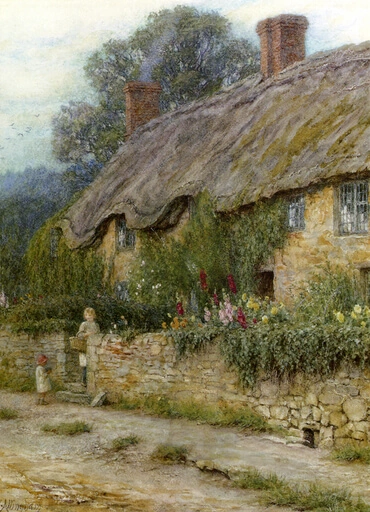1
At lumabas si Dina na anak ni Lea, na ipinanganak nito kay Jacob, upang tingnan ang mga anak na babae ng lupaing yaon.
2
At siya'y nakita ni Sichem, anak ni Hamor, na Heveo, na prinsipe sa lupain; at siya'y kinuha at sumiping sa kaniya, at siya'y pinangayupapa.
3
At inilakip niya ang kaniyang kaluluwa kay Dina, na anak ni Jacob at kaniyang sininta ang dalaga, at nakiusap ng kalugodlugod sa dalaga.
4
At si Sichem ay nagsalita sa kaniyang amang kay Hamor, na sinabi, Ipakamit mo sa akin ang dalagang ito na maging asawa ko.
5
Nabalitaan nga ni Jacob na dinahas ang kaniyang anak na si Dina; at ang kaniyang mga anak ay nasa kasamahan ng mga hayop niya sa parang: at tumahimik si Jacob hanggang sa sila'y dumating.
6
At nilabas ni Hamor na ama ni Sichem si Jacob upang makiusap sa kaniya.
7
At ang mga anak ni Jacob ay nagsiuwi mula sa parang nang kanilang mabalitaan: at nangagdamdam ang mga lalake, at nagningas ang kanilang galit, sapagka't gumawa ng kaululan sa Israel, na sinipingan ang anak ni Jacob; bagay na di nararapat gawin.
8
At nakiusap si Hamor sa kanila, na sinasabi, Ang kaluluwa ni Sichem na aking anak ay sumasa iyong anak; ipinamamanhik ko sa inyo na ipagkaloob ninyo sa kaniya na maging asawa niya.
9
At magsipagasawa kayo sa amin; ibigay ninyo sa amin ang inyong mga anak na babae, at ibibigay namin sa inyo ang aming mga anak na babae.
10
At tatahan kayong kasama namin; at ang lupain ay sasa harap ninyo; tumahan kayo at mangalakal kayo riyan at magkaroon kayo ng mga pag-aari riyan.
11
At sinabi ni Sichem sa ama ni Dina, at sa mga kapatid niya, Makasundo nawa ako ng biyaya sa inyong mga mata at ang sabihin ninyo sa akin ay aking ibibigay.
12
Hingin ninyo sa akin ang walang bilang na bigay-kaya at kaloob, at aking ibibigay ayon sa sabihin ninyo sa akin; ipagkaloob lamang ninyo sa akin ang dalaga na maging asawa ko.
13
At nagsisagot na may pagdaraya ang mga anak ni Jacob kay Sichem at kay Hamor na kaniyang ama, at sila'y nagsalitaan, sapagka't kaniyang dinahas si Dina na kanilang kapatid.
14
At sinabi niya sa kanila, Hindi namin magagawa ito, na ibigay ang aming kapatid sa isang hindi tuli; sapagka't isang kasiraan ng puri namin.
15
Sa ganitong paraan lamang papayag kami sa inyo: kung kayo'y magiging gaya namin, na mangatuli ang lahat ng lalake sa inyo;
16
Ay ibibigay nga namin sa inyo ang aming mga anak na babae, at makikisama kami sa inyong mga anak na babae, at tatahan kami sa inyo, at tayo'y magiging isa lamang bayan.
17
Datapuwa't kung ayaw ninyo kaming pakinggan, na kayo'y mangatuli; ay dadalhin nga namin ang aming anak na babae at kami ay yayaon.
18
At ang kanilang mga salita ay kinalugdan ni Hamor at ni Sichem, na anak ni Hamor.
19
At hindi iniliban ng binata ang paggawa niyaon, sapagka't nalugod siya sa anak na babae ni Jacob: at siya ang pinarangalang higit sa buong sangbahayan ng kaniyang ama.
20
At si Hamor at si Sichem na kaniyang anak ay napasa pintuang-bayan ng kanilang bayan, at sila'y nakiusap sa mga tao sa kanilang bayan, na sinasabi.
21
Ang mga taong ito ay tahimik sa atin; kaya't magsitahan sila sa lupain at magsipangalakal sila riyan; sapagka't narito, ang lupain, ay may malabis na kaluwangan sa kanila; tayo'y makisama sa kanilang mga anak na babae, at ating ibigay sa kanila ang ating mga anak.
22
Sa ganito lamang paraan papayagan tayo ng mga taong iyan, sa pagtahan sa atin, na maging isa lamang bayan, kung patuli ang lahat ng lalake sa atin, na gaya naman nila na mga tuli.
23
Di ba magiging atin ang kanilang mga baka at ang kanilang mga pag-aari at ang lahat nilang hayop? Atin lamang silang payagan, at tatahan sa atin.
24
At pinakinggan si Hamor at si Sichem na kaniyang anak, ng lahat na lumalabas sa pintuan ng kaniyang bayan; at ang lahat ng lalake ay nagtuli, ang lahat ng lumalabas sa pintuan ng kaniyang bayan.
25
At nangyari, nang ikatlong araw, nang sila'y nangasasaktan, na ang dalawa sa mga anak ni Jacob, si Simeon at si Levi, na mga kapatid ni Dina, na kumuha ang bawa't isa ng kaniyang tabak, at sila'y lihim na pumasok sa bayan, at kanilang pinatay ang lahat ng mga lalake.
26
At kanilang pinatay si Hamor at si Sichem na kaniyang anak, sa talim ng tabak, at kanilang kinuha si Dina sa bahay ni Sichem, at sila'y nagsialis.
27
Nagsiparoon ang mga anak ni Jacob sa mga patay, at kanilang sinamsaman ang bayan, sapagka't kanilang dinahas ang kapatid nila.
28
Kinuha nila ang kanilang mga kawan at ang kanilang mga bakahan, at ang kanilang mga asno, at ang nasa bayan, at ang nasa parang;
29
At ang kanilang buong yaman, at ang lahat ng kanilang mga anak, at mga asawa, ay dinala nilang bihag at samsam, sa makatuwid baga'y lahat na nasa bahay.
30
At sinabi ni Jacob kay Simeon at kay Levi, Ako'y inyong binagabag, na pinapaging mapagtanim ninyo ako sa mga tumatahan sa lupain, sa mga Cananeo, at sa mga Pherezeo; at akong may kaunting tao, ay magpipisan sila laban sa akin, at ako'y sasaktan nila; at lilipulin ako at ang aking sangbahayan.
31
At kanilang sinabi, Aariin ba niya ang aming kapatid na parang isang patutot?







